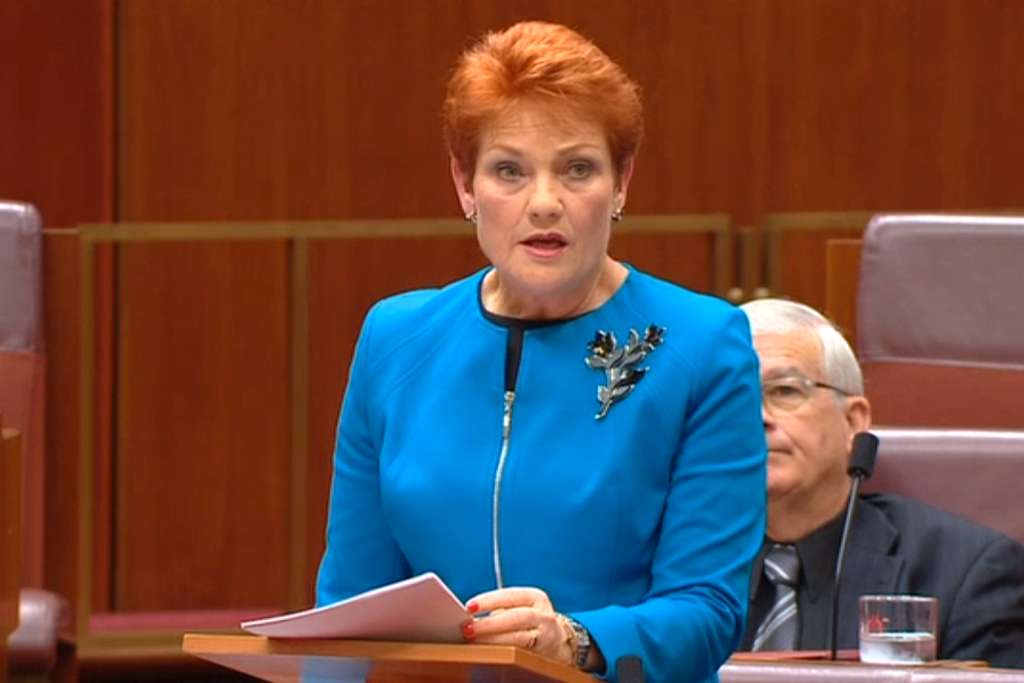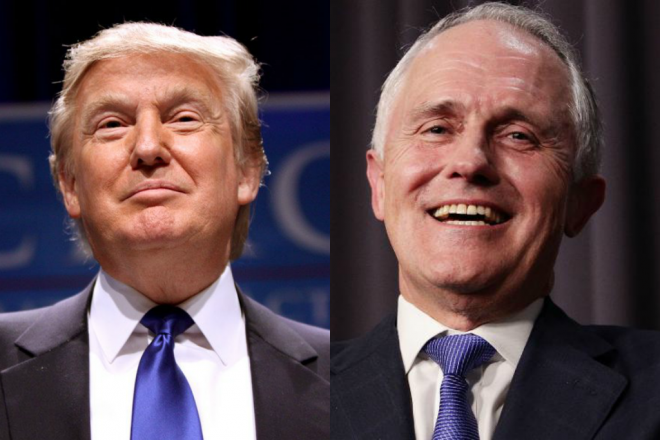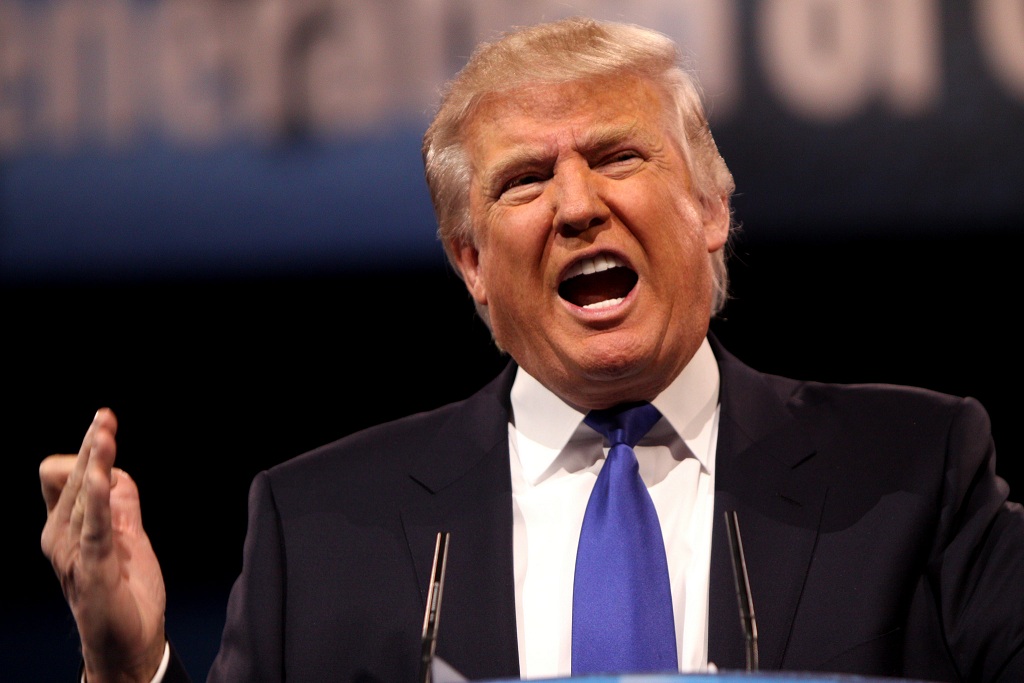Could A Muslim Ban Actually Happen In Australia?
We asked the experts and the answer is very depressing.

When he wasn’t negging Australia’s Prime Minister and praying for Arnold Schwarzenegger’s poor ratings, Donald Trump spent the first two weeks of his presidency undertaking a new hobby: signing terrifying and unprecedented executive orders.
One in particular has sparked huge protests, lawsuits, and angry tweets: the Muslim ban (which Trump insists is not a Muslim ban). Citizens of seven countries with Muslim majorities have been banned from entering the US for 90 days — even when they have a valid visa.
Notably, one group that hasn’t been so quick to condemn the executive orders is Australia’s government. Malcolm Trumble has been mum on the topic, and Julie Bishop was vaguely supportive of it. The biggest fan has been former border protection tsar Scott Morrison. When asked about the ban in a radio interview, he seemed kinda chuffed. “Really, the rest of the world is catching up to Australia,” he said.
So, something that a lot of people see as extreme and xenophobic, Morrison sees as following in our footsteps. That should make us stop and ask whether something like Trump’s sledgehammer response to fears of Islamic terrorism could happen here.
It might sound far-fetched, but is it really? After all, a lot of people didn’t think Trump would actually go through with it, and he did it in week one. Like Morrison said, Australia has led the way in exclusionary immigration policies for years. Add to that the growing popularity of the anti-Islam One Nation party, the swelling of xenophobic populism globally, and last year’s poll showing half of Australians want a ban on Muslim immigration — and the future looks bleak.
So, a Muslim ban: can we even do that?! Junkee checked in with four constitutional law big guns, and the answer is: yes, probably.
“We Decide Who Comes To This Country, And The Circumstances In Which They Come”
The starting point for all this is Johnny Howard’s famous declaration, which turns out to be pretty true for Australia’s parliament. The Constitution gives parliament close to unlimited power to make laws about immigration, and that includes cutting it way back. This is one of the reasons why asylum seeker advocates have had a tough time persuading the High Court to overrule our tough border policies.
Let’s say Australia directly copies Trump’s executive order, and stops immigration from Yemen, Iraq, Libya, Somalia, Syria, Iran, and Sudan. None of the constitutional experts we spoke to think this would be unconstitutional. As part of the broad power to make immigration laws, it’s A-OK if our immigration policy is discriminatory: we can be as restrictive as we like.
Dr Luke Beck of Western Sydney University used the White Australia Policy as an example. “The whole point of [that] was to be incredibly discriminatory,” he said. “That was constitutionally valid.”
American lawyers have relied on concepts called ‘equal protection’ and ‘due process’ in arguing against Trump’s executive order, which basically mean you can’t treat one group in society unfairly without a good reason. The American lawyers who’ve won the first courtroom battles against Trump’s executive order have looked to the Bill of Rights to make their case. So far the judges have agreed that there is a chance Trump’s ban could be unconstitutional, and that’s why they’ve suspended it until further court hearings can occur.
But one big difference between Australia and the US is that they have a Bill of Rights, and we don’t. For that reason, we don’t have any similar restriction on our law-making.
But What If It Was Broader Than That?
What if the government tried to straight-up ban Muslim immigration from all nations (without pretending they were doing something else)? Well, again, according to the experts we spoke to… that’s also probably fine.
The only possible problem is Section 116 of the constitution, which states the Commonwealth can’t make laws establishing a religion, or prohibiting the “free exercise” of any religion. Sydney University professor Helen Irving said this probably wouldn’t stop Australia actually excluding people based on religion. “[The section] has been interpreted very narrowly and only in very few cases,” she said.
However, the Dean of UNSW’s Law School, Professor George Williams told us an explicit Muslim ban would prevent free exercise of religion. Indeed, American lawyers are making that very argument about Trump’s orders.
The US has a similar rule to Section 116 in its First Amendment. But American lawyers might have an easier time, as it has been interpreted more broadly in the US than in Australia.
If there’s no direct constitutional obstacle, a Muslim ban might still be difficult to introduce. “In practical terms, it would be extremely difficult,” Sydney University Professor Anne Twomey said. “How do you determine in an objective and verifiable manner what religion a person holds?”
So a government might find it easier to ban immigration from citizens of certain countries, rather than by their religion.
Of course, even if this happened, Australian citizens are always allowed to enter the country. That is, unless they’re dual nationals and the government uses recent laws to strip them of their Australian citizenship.
It’s Not All Bad News!
There’s one big difference between the US and Australia that might cheer you up. In the US, the president has power over immigration. But in Australia, that power belongs to the parliament. That means that we can’t be surprised by any whacky executive orders — instead, a law would need to be debated and pass both houses. It also means the government can’t deport anyone or make decisions contrary to laws already on the books.
The upshot of all of this is that is that there’s really nothing stopping Australia copying the US, though it would be harder for our politicians to sign a ban into law. But once it was introduced, lawyers would have a hard time persuading a judge to intervene the way they have in the US. As our Constitution doesn’t have a lot of protection of rights going on, our parliament has more power to make dodgy laws than the US Congress and President do.
“The general protection against bad laws is the ability to vote MPs out of office,” Dr Beck explains.
If we want to prevent stuff like this from going down in Australia, our system probably isn’t going to do it for us. It’s up to people to get involved with politics, and tell politicians what they will and won’t stand for.
–
Hannah Ryan is a freelance writer currently studying postgraduate law in the US.


